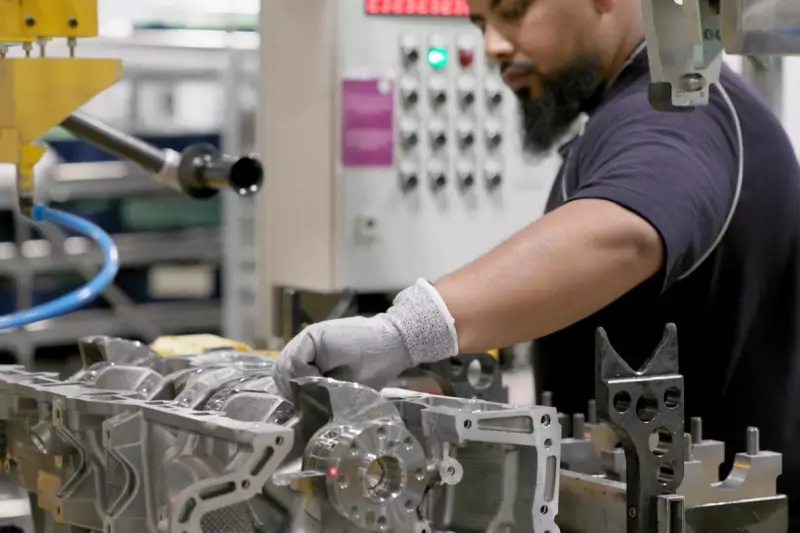
The UK's economic expansion slowed sharply in the third quarter of 2025, official statistics have confirmed, as a major cyber attack on a leading carmaker and falling household incomes took their toll.
Growth Grinds Towards a Halt
The Office for National Statistics (ONS) confirmed that gross domestic product (GDP) grew by a mere 0.1% between July and September. This sluggish pace marks a clear deceleration from the previous three-month period.
Furthermore, the ONS revised down its estimate for growth in the second quarter. Expansion in the three months to June is now put at 0.2%, down from the initial estimate of 0.3%.
Liz McKeown, ONS director of economic statistics, stated: "Today’s updated figures paint the same picture as our initial estimate, with growth continuing to slow in the third quarter. Growth in services were partially offset by falls in production, with a marked drop in car manufacturing."
Manufacturing Blow and Squeezed Households
The statistics body highlighted that the slowdown was partly driven by a significant cyber attack at Jaguar Land Rover, which severely knocked activity in the manufacturing sector.
A more detailed breakdown of the data reveals a worrying squeeze on living standards. GDP per person showed no growth in the third quarter, ending six consecutive quarters of expansion.
Simultaneously, real household disposable income fell sharply by 0.8%, driven by a substantial £6 billion increase in taxes. Consequently, the household savings ratio dropped to 9.5%, its lowest level since the second quarter of 2024.
Subdued Outlook Amid Global Context
Despite the downward revisions, the UK's growth rate for the first nine months of 2025 meant it remained the joint fastest growing economy in the G7, alongside Japan, with growth of 0.9%.
However, the near-term outlook appears challenging. The Bank of England, which cut interest rates from 4% to 3.75% last week, expects growth to flatline in the final three months of the year.
Matt Swannell, chief economic adviser to the EY Item Club, commented: "The outlook for the private sector remains subdued. Real household income growth is now slowing sharply... Given that fiscal policy is tightening and the effects of borrowers refinancing cheap fixed-rate mortgages will more than offset cuts to bank rate, another year of sluggish growth for the UK economy is expected in 2026."
The ONS did revise up growth for the final quarter of 2024 to 0.3%, but the overall growth figure for 2024 was left unchanged at 1.1%.





